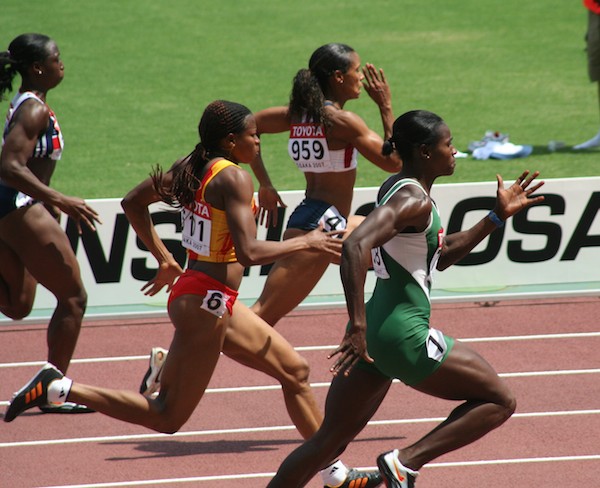One of my favorite parts of writing Dear Sports Fan is reading other great writers cover sports in a way that’s accessible and compelling for the whole spectrum from super-fans to lay people. This weekend, I read a wonderful profile of the aging boxer, Bernard Hopkins, by Carlo Retella in the New York Times. It’s an excellent example of a classic sports profile. Rotella choses an intriguing athlete and spends time and effort to understand him. The result is a fascinating story about a complicated man who defies expectations to exceed in his sport. I loved it and had it lined up to feature in this section of the website. Then I read Amy Bass’ thought-provoking piece, ‘Calling Nature a Cheat’ in the Allrounder. Bass tells the story of Dutee Chand, an eighteen year-old Indian professional sprinter who was recently suspended from competition because of high androgen levels. She is not being accused of cheating but she’s not allowed to compete either. Bass persuasively poses the question – why do we laud male athletes who exceed our expectations while suspending female athletes who do the same? What makes Chand’s chemical advantages different from the mental and physical advantages that allow Hopkins to consistently beat men his exact size who are fifteen or twenty years younger than him?
This question struck home for me, because it’s absolutely true — we sports fans love talking with fascination, admiration, and wonder about the physical characteristics of male athletes that help them do things we could never do. Whether it’s a basketball player’s wingspan that far exceeds his height, or a cyclists heart that beats one-third as frequently as mine, we know that male athletes are not like us. Why should the female athletes be physiologically “normal?” These articles made me think twice and more about the way we think about male and female athletes. I hope they do for you as well.
Bernard Hopkins, Boxing’s Oldest – and Most Cunning – Champion
by Carlo Rotella for The New York Times
One key to his longevity at the top of the fight world is that he has come to consider it “barbaric” to exchange blows with an opponent.
There are masters of defense who rely on will-o-the-wisp elusiveness, making a spectacle of ducking punches. Others build a fortress with their gloves, arms and lead shoulder, deflecting incoming blows. Hopkins can slip and block punches with the best of them, but his defensive technique is founded on undoing the other man’s leverage by making constant small adjustments in spacing and timing that anticipate and neutralize attacks before they begin. It’s somehow never quite the right moment to hit Hopkins with a meaningful shot. Boxers, especially big hitters, feel a kind of click when the necessary elements — range, balance, timing, angle — line up to create an opening to throw a hard punch with proper form. Hopkins doesn’t run away, but an opponent can go for long stretches of a round without ever feeling that click.
Calling Nature a Cheat
By Amy Bass for the Allrounder
Women on the field continued to be understood within the confines of a biological determinism that solidified the notion of their physical incapacity when compared with men. In short, there was only so much that the male-dominated, male-defined, sports world expected of women, and if they performed beyond those expectations, they were suspected of being men.
Chand’s appeal to CAS, then, goes far beyond the question of defining women competitors: she is questioning the very nature of how we conceive of competition. What does it mean to compete with the body that one is born with? Can we applaud strong women athletes if one is categorized as a man when she gets too strong? And, perhaps most importantly for sport writ large, what actually constitutes an unfair competitive advantage? If an advantage comes naturally, can it be deemed unfair?
Sports enthusiasts marvel over Michael Phelps’s disproportionate torso or the height of Yao Ming – there is no problem accepting the seemingly genetic freakiness of these male champions. Athletes with unusual training regimens, too, whether runners working at high altitude or someone like Shaun White pretty much buying his own mountain, are commended for their dedication, their effort. But, the natural make-up of Chand’s body is considered to be, for all intents and purposes, cheating because, according to the rules of the IAAF, it makes her less of a woman and, hence, too much of a potential athlete.

